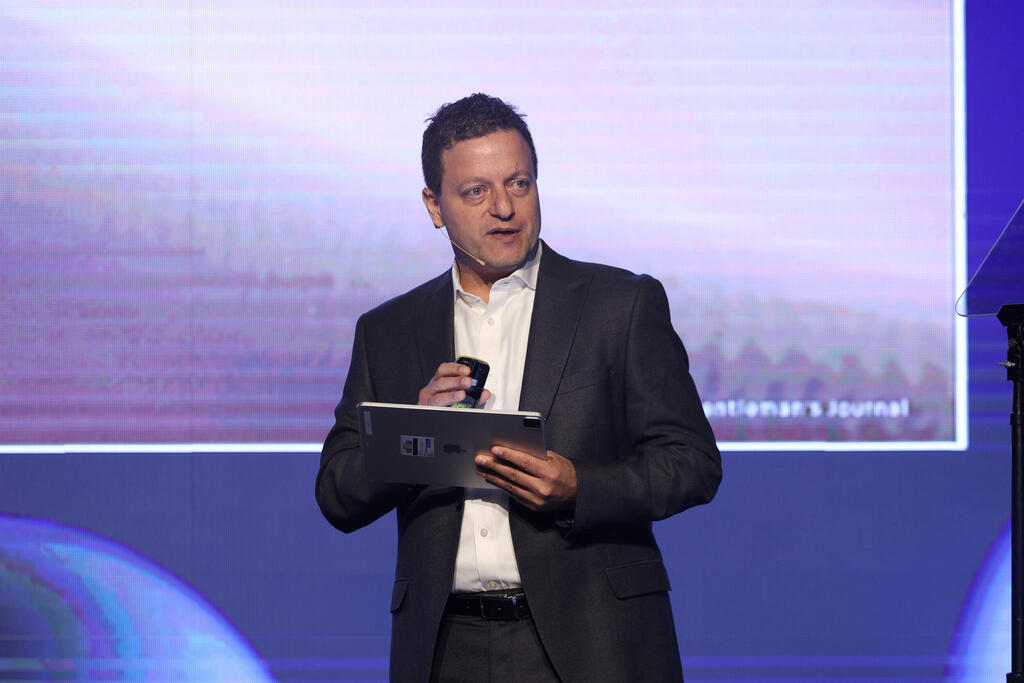
"Economic cooperation with the Gulf states will contribute to Israel's economic growth”
Samer Haj-Yehia, Chairman of Bank Leumi, was speaking at Calcalist and Bank Leumi’s National Economic Conference in Tel Aviv
"Economic cooperation with the Gulf states will contribute to Israel's economic growth,” said Samer Haj-Yehia, Chairman of Bank Leumi, speaking on Tuesday at Calcalist and Bank Leumi’s National Economic Conference in Tel Aviv.
In 1981, against the backdrop of the Iran-Iraq war, the Gulf principalities came together to strengthen their common interests. According to Leumi's Chairman, the union between the countries resulted in many years of growth. "The Gulf countries, with a policy of geopolitical stability and international neutrality, have become the new Switzerland of the world. Thus, the leaders of the Gulf meet with U.S. President Joe Biden, Chinese President Xi Jinping, or with Russian President Vladimir Putin and Ukrainian President Vladimir Zelensky. Their educated and experienced leadership, with a long-term vision, is focused on the well-being of citizens and residents through maintaining security and economic and technological progress, and attracting investments from abroad."
Haj-Yehia added that the governmental stability that the countries have enjoyed in recent decades has contributed to long-term investment in those countries that are already bearing fruit today and will bear fruit in the future as well.
According to him, "The economic growth experienced by the Gulf countries is one of the best in the world, and it is expected to continue in the next decade, with low inflation. Economically, the countries were able to double their GDP and increase their GDP per capita by 50% without increasing their debt to GDP. This is better than Western economies."
According to Haj-Yehia, "There are business opportunities and direct investment in the Gulf countries in many fields and significant projects, as well as expansion opportunities to Asian countries. Such collaborations will contribute to Israel's economic growth and lower the cost of living."
He added that "the Gulf countries are undergoing a significant change of 180 degrees in a number of different aspects. For example, 90% of those employed in the Gulf countries are foreigners - there are foreign workers from 200 different countries in the Emirates and Qatar. The three Abrahamic religions are also adequately represented, and churches and synagogues can be found alongside mosques."
According to Haj-Yehia, "Even in terms of entrepreneurship, the Gulf is trying to close gaps, and indeed they are reducing gaps with Israel in terms of local technology companies. In terms of communication infrastructure, they are already bypassing Israel. With the goal of promoting the economy of the Gulf countries, leaders of the countries are adopting an economic vision. They want to increase the national product, among other things by increasing participation in work through increasing the participation rate of women in the labor market and strengthening small businesses. These actions will lead to growth in the Gulf countries beyond the global growth average - that's why business owners should allocate their investments in this direction."
He pointed out that Israeli companies can contribute and integrate into the economy of the Gulf countries through several industries - mainly the cloud industries and transportation technology.
"The countries want to develop a new railway system. This train will connect all the countries and maybe, God willing, will also connect Israel to these countries," he stated.














